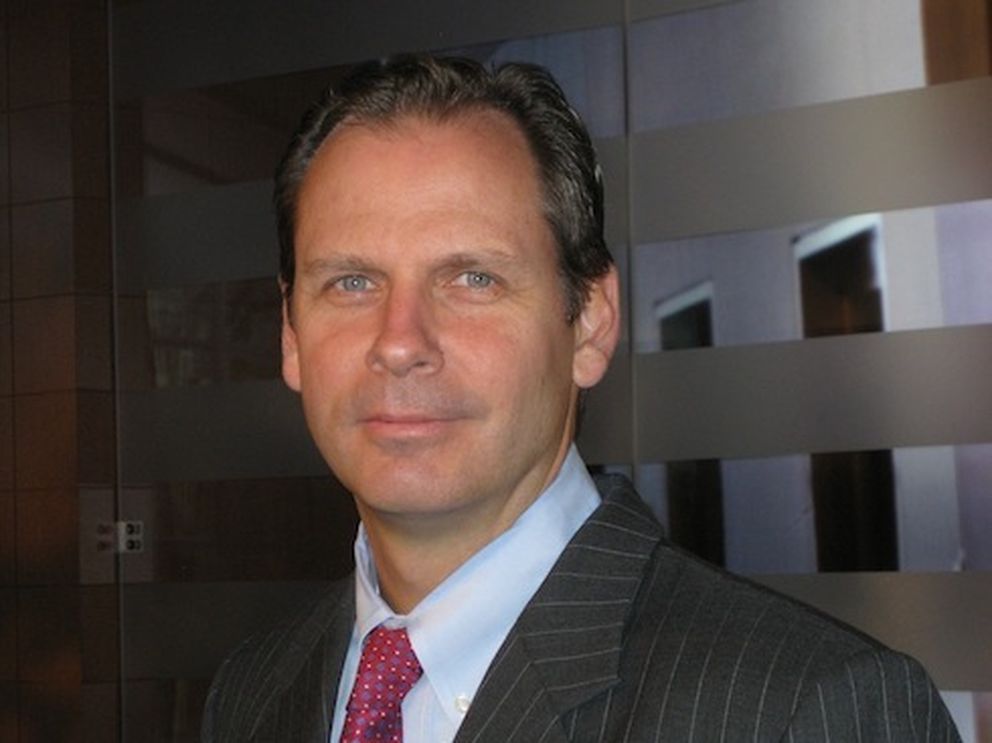Kyndryl has spun out from IBM as an independent managed infrastructure services provider (MSP) business, IBM confirmed on November 3. Here's everything you need to know about the Kyndryl MSP business.

Starting on November 4, Kyndryl will trade on the New York Stock Exchange under the symbol KD. In a prepared statement, IBM CEO Arvind Krishna said:
“The separation of Kyndryl is one of many actions we are taking to sharpen our focus on hybrid cloud and AI, leverage a portfolio clearly focused on technology and consulting, and achieve our growth objectives. We look forward to our partnership with Kyndryl as it moves forward as an independent company.”
Updated November 4, 8:00 a.m. ET: Here's a statement from Kyndryl CEO Martin Schroeter:
"We are thrilled that Kyndryl is today an independent company -- with 90,000 of the best and brightest professionals, a strong balance sheet and a path to growth. There is a large and growing need for digital transformation services, and our unrivaled global expertise in creating, managing and modernizing mission-critical information systems positions us well in a market that will expand to more than $500 billion by 2024. We look forward to the path ahead, with a flatter and faster company that is at the heart of progress for our customers and for the world."
Here are additional details about the spin-out.
1. Managed IT Services Portfolio: Kyndryl has six global managed services practices that span:
- Cloud
- Applications, Data & AI
- Security & Resiliency
- Core Enterprise & zCloud
- Network & Edge
- Digital Workplace
2. Advisory and Implementation Services Practice: This includes a "group of senior business and technology executives who can advise Kyndryl customers on best-in-class digital environments and the adoption and integration of advanced technologies."
3. Customer Base: Kyndryl has relationships with 4,600 customers and a backlog of more than $60 billion.
4. Headcount: The MSP has roughly 90,000 employees.
5. Executive Leaders: Key executive team members include:
- Martin Schroeter, CEO
- Harsh Chugh, Chief Operations Officer
- Nelly Akoth, Chief Transformation Officer
- Michael Bradshaw, Chief Information Officer
- Maryjo Charbonnier, Chief Human Resources Officer
- Elly Keinan, Group President
- Vineet Khurana, Controller
- Una Pulizzi, Global Head of Corporate Affairs
- Rick Ruiz, Strategic Markets President
- Edward Sebold, General Counsel
- Antoine Shagoury, Chief Technology Officer
- Maria Bartolome Winans, Chief Marketing Officer
6. Global Leaders: Kyndryl has a global leadership model for key markets representing more than three-fourths of the MSP's revenue. The key leaders, announced July 1, 2021, include:
- Tosca Colangeli, President of Kyndryl United Kingdom and Ireland
- Xerxes Cooper, President of Kyndryl Canada
- Paolo Degl'Innocenti, President of Kyndryl Italy
- Luis Roca Fernandez, President of Kyndryl Spain and Portugal
- Markus Koerner, President of Kyndryl Germany
- Matt Milton, President of Kyndryl United States
- Kerry Purcell, President of Kyndryl Australia and New Zealand
- Philippe Roncati, President of Kyndryl France
- Lingraju Sawkar, President of Kyndryl India
- Takashi Uesaka, President of Kyndryl Japan
- Also, Rick Ruiz will become Kyndryl's Strategic Markets President and will lead Kyndryl's activities in all other countries.
7. IBM and Kyndryl Competitive Overlap: The two companies will surely cooperate — but they could also wind up competing on some fronts. For instance, IBM since June 2020 has acquired the following companies:
- May 2021: Catalogic for data protection technologies.
- May 2021: Waeg for Salesforce cloud consulting expertise.
- April 2021: Turbononic for hybrid cloud automation.
- April 2021: myInvenio for business automation.
- January 2021: Taos, a Top 250 Public Cloud MSP as ranked by ChannelE2E.
- January 2021: 7Summits for Salesforce cloud consulting expertise.
- December 2020: Nordcloud for cloud consulting, migration and transformation capabilities.
- November 2020: SAP software developer & IT services partner TruQua Enterprise.
- November 2020: Application performance monitoring (APM) software company Instana.
- June 2020: WDG for robotic process automation (RPA) software expertise.
- June 2020: Spanugo for cloud cybersecurity posture management solutions.
It’s retained those acquisitions amid the Kyndryl spin-out, ChannelE2E believes. But Kyndryl may also need some of its own hybrid cloud consulting expertise in order to manage customers’ modernized hybrid cloud infrastructures, ChannelE2E believes.
Also, both IBM and Kyndryl offer cybersecurity services. IBM has a Top 250 MSSP business unit, as tracked by MSSP Alert. And Kyndryl will need to offer security baked into its MSP services for customer infrastructure, ChannelE2E notes.
8. Kyndryl Stock Market Valuation: To be determined.
9. Kyndryl Stock Ticker: KD, once the spin-off occurs.
10. Kyndryl Quarterly Revenues and Net Loss:
- Kyndryl Revenues: Kyndryl generated $4.751 billion in revenue for the three months ended June 30, 2021, compared to $4.737 billion for the corresponding quarterly in 2020.
- Kyndryl Net Loss: Kyndryl’s net loss was $393 million for the three months ended June 30, 2021, compared to a net loss of $373 million in the corresponding quarter the previous year.
11. Bonus - Kyndryl Annual Revenues and Net Loss:
- Kyndryl Annual Revenues: Kyndryl generated annual revenue of $19.352 billion in 2020, down from $20.279 billion in 2019 and $21.796 billion in 2018.
- Kyndryl Annual Net Loss: Kyndryl had a net loss of $2.011 billion in 2020, $943 million in 2019 and $980 million in 2018.
12. Bonus - Key Kyndryl Competitors: The list of potential Kyndryl competitors and alternatives, according to ChannelE2E, includes Accenture, Atos, Capgemini, Cognizant, Deloitte, DXC Technology, Ernst & Young (EY), Infosys, HCL, KPMG, NTT, PwC, Tata Consultancy Services, and Wipro, among others.
13. Bonus - Board of Directors: Kyndryl announced these board members on September 28, 2021:
- Martin Schroeter expands from CEO to Kyndryl board chairman.
- Stephen Hester, lead independent director and former CEO of RSA Insurance Group.
- Dominic J. Caruso, former CEO, Johnson & Johnson.
- John Harris, former VP of business development, Raytheon.
- Shirley Ann Jackson, president, Rensselaer Polytechnic Institute.
- Janina Kugel, former chief human resources officer, Siemens AG.
- Denis Machuel, CEO.
- Rahul Merchant, senior executive VP of client service and technology, Teachers Insurance and Annuity Association of America-College Retirement Equities Fund (TIAA).
- Jana Schreuder, former executive VP and chief operating officer, Northern Trust Corporation.
- Howard Ungerleider, president and CFO, Dow.
Blog originally published July 1, 2021. Updated regularly thereafter with new Kyndryl business information.




